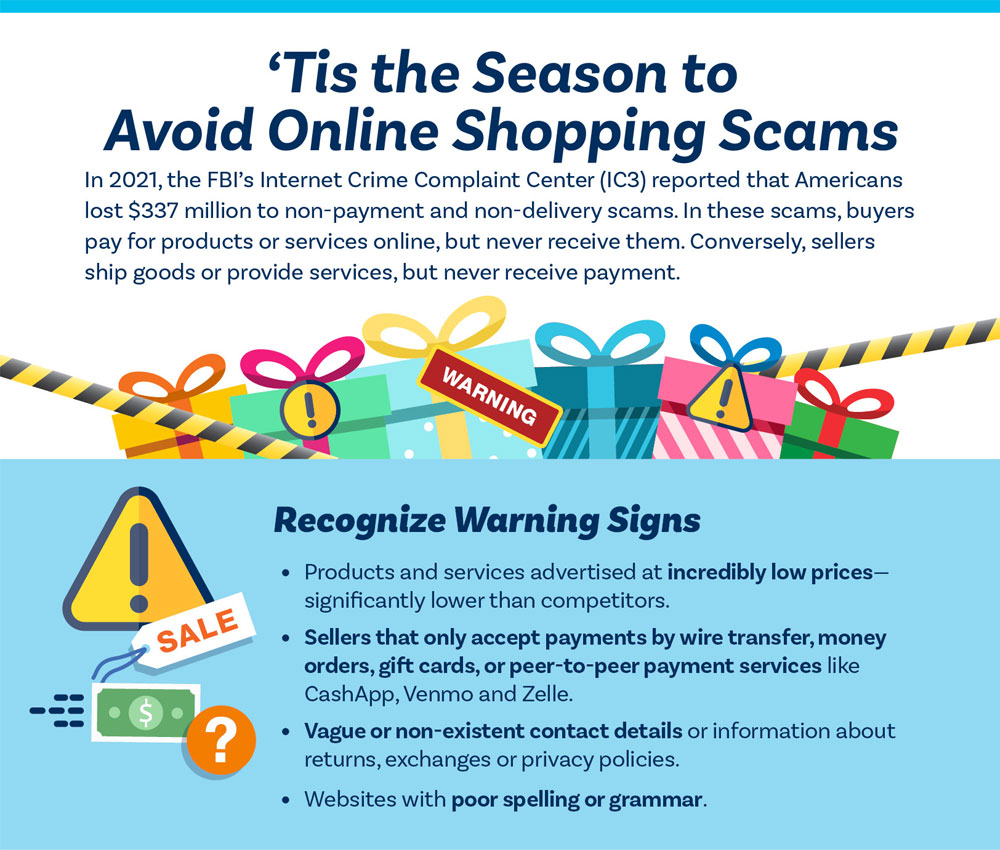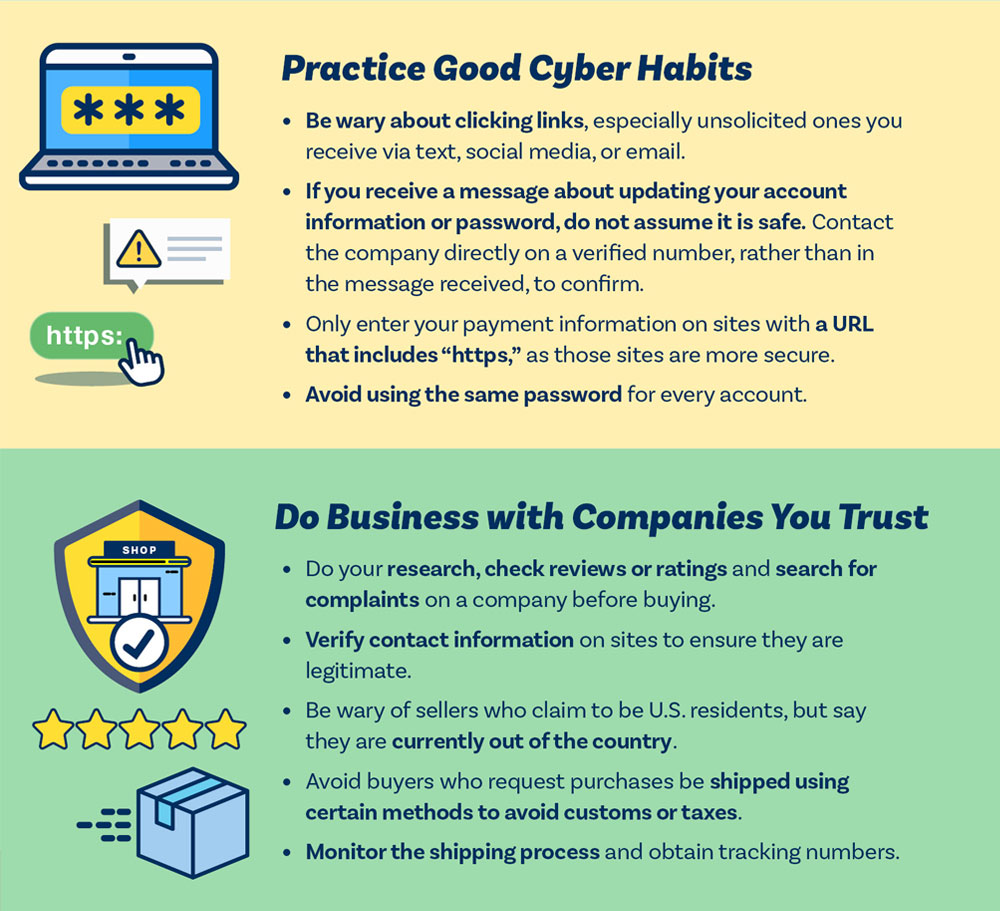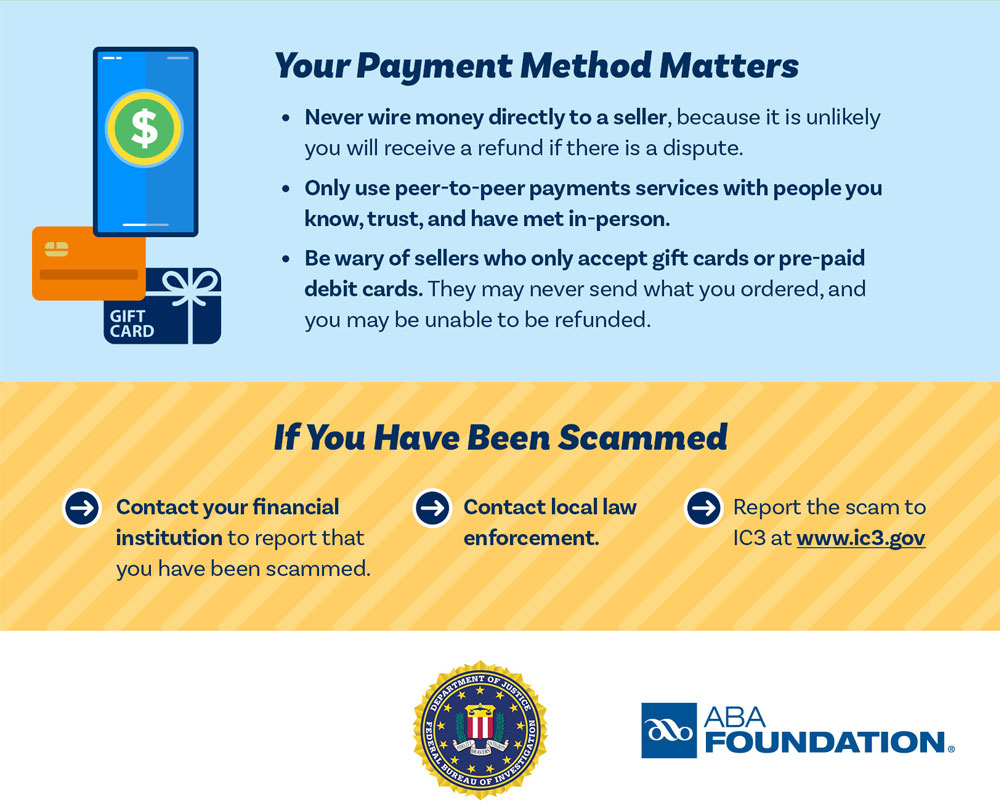|
BACK TO NEWS
‘Tis the Season to Avoid Online Shopping Scams
December 20, 2022: In 2021, the FBI’s Internet Crime Complaint Center (IC3) reported that Americans lost $337 million to non-payment and non-delivery scams. In these scams, buyers pay for products or services online, but never receive them. Conversely, sellers ship goods or provide services, but never receive payment.



Recognize Warning Signs
- Products and services advertised at incredibly low prices— significantly lower than competitors.
- Sellers that only accept payments by wire transfer, money orders, gift cards, or peer-to-peer payment services like CashApp, Venmo and Zelle.
- Vague or non-existent contact details or information about returns, exchanges or privacy policies.
- Websites with poor spelling or grammar.
Practice Good Cyber Habits
- Be wary about clicking links, especially unsolicited ones you receive via text, social media, or email.
- If you receive a message about updating your account information or password, do not assume it is safe. Contact the company directly on a verified number, rather than in the message received, to confirm.
- Only enter your payment information on sites with a URL that includes “https,” as those sites are more secure.
- Avoid using the same password for every account.
Do Business with Companies You Trust
- Do your research, check reviews or ratings and search for complaints on a company before buying.
- Verify contact information on sites to ensure they are legitimate.
- Be wary of sellers who claim to be U.S. residents, but say they are currently out of the country.
- Avoid buyers who request purchases be shipped using certain methods to avoid customs or taxes.
- Monitor the shipping process and obtain tracking numbers.
Your Payment Method Matters
- Never wire money directly to a seller, because it is unlikely you will receive a refund if there is a dispute.
- Only use peer-to-peer payments services with people you know, trust, and have met in-person.
- Be wary of sellers who only accept gift cards or pre-paid debit cards. They may never send what you ordered, and you may be unable to be refunded.
If You Have Been Scammed
- Contact your financial institution to report that you have been scammed.
- Contact local law enforcement.
- Report the scam to IC3 at www.ic3.gov.
Back to NEWS
This article has been republished with permission. View the original article.
|